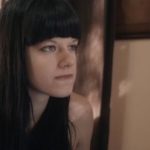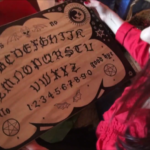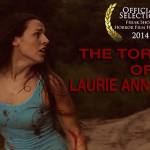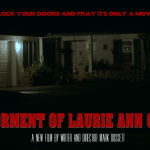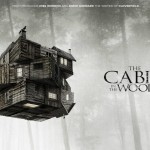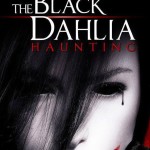Review by Chris Rennirt
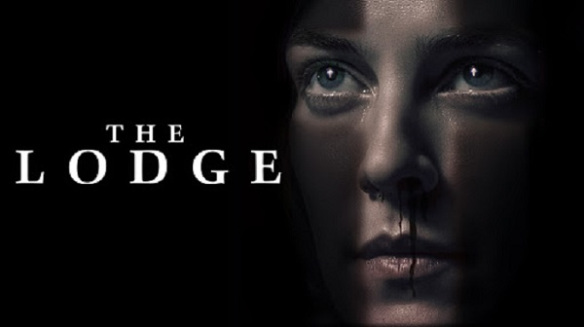
Grace (Riley Keough) is the only survivor of a mass cult suicide she witnessed as a child, nearly twenty years earlier. She has recovered from her trauma, only with medication, time, and protection from memories. But, trouble is brewing again! Grace is now the stepmother-to-be of two children who aren’t happy about the new family-to-be. Their mother’s recent suicide, along with a trip to the family lodge, are just what’s needed for a horror trip of high-caliber hell and nightmares revisited. It’s complete with evil children, a lodge (as bad as “A Cabin”) in the woods, mysterious events, insanity, and, yes, even a cute little dog–hopefully cute enough to stay safe! With all of that, The Lodge (from directors Severin Fiala and Veronika Franz) has a little something for everyone!
“I had a weird dream last night. A nightmare. But in the dream, the gas heater started smoking and we couldn’t breathe, and we suffocated.” ~ Aidan
Yes! I must digress immediately. As a lover of dogs, I was on edge from the moment I laid eyes on Grady–a fluffy, white lap dog, as cute as dogs can be. He was the flashpoint of horror I felt on instinct. (Having such a dog myself made the reality and tension all the worse.) Just like the blonde in an 80s slasher, Grady was the one I expected to go first. Cringing, I thought I would dislike The Lodge, if Grady was harmed, and possibly for no other reason; if but a single hair on his fluffy head was lost, the movie was over for me. I was sure. However, without revealing too much, I will tell you this: his fate, as it turned out, did not affect my judgement of the movie. Ultimately, Grady made my connection to the horror all the more real and effective. It is the character reactions related to Grady that gave me trouble. More about that later!
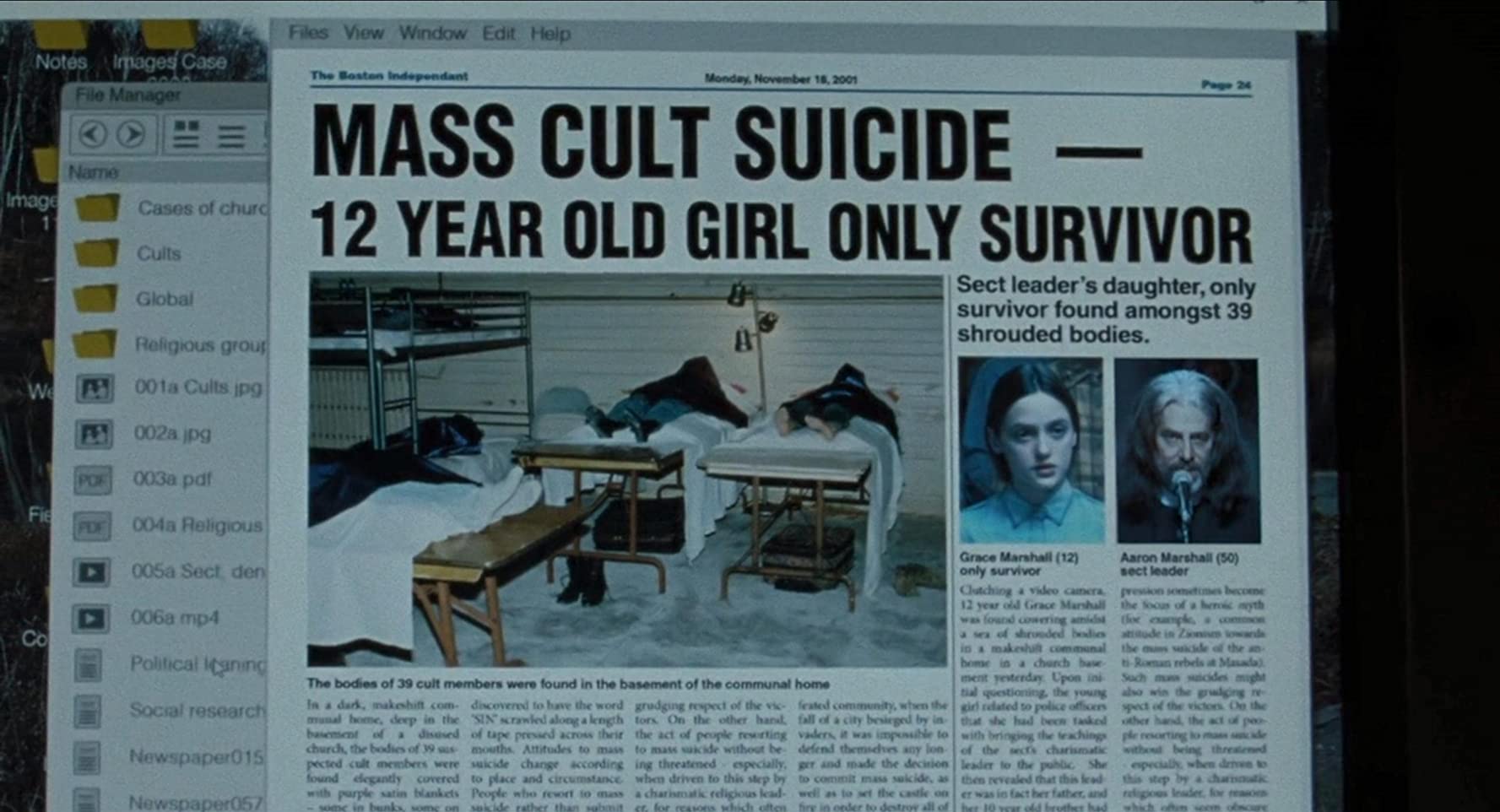
Headlines perfect for a horror film!
The cast of human characters includes Riley Keough (Grace), Aidan (Jaeden Martell), Mia (Lia McHugh), Richard (Richard Armitage), and Laura (Alicia Silverstone). Alicia Silverstone, best known for her role as Cher in Clueless (1995), plays the short-lived, but important Laura–the mother of Mia and Aidan. Richard Armitage (as Mia’s and Aidan’s father) has little more of a role; like Silverstone, he serves mostly as a generic father, albeit outstanding in his role and moments on screen–a father who loves his children, but insists on them accepting his new wife way too soon. His idea for the family to spend quality time at a remote lodge in the snowy woods is exactly what’s needed to get the horror going. Lia McHugh (as Mia) and Jaeden Martell (as Aidan) are the vengeful brother and sister pair who hate Grace, also because they blame her for their mother’s death. McHugh and Martell are mostly without the opportunity to shine as actors, with roles calling for more subdued, less dramatic performances through most of the movie. Martell does take advantage of several opportunities to stand out; showing fear that is intense and genuine, she exceeds what we expect to see, making the moments real and exceptional.
“You don’t want to talk to me. You just want to watch me in the shower.” ~ Grace (to Aidan)
Riley Keough (as Grace, the main character), carries the weight of the movie, with a performance that delivers just the needed psychologically-fragile woman, filled with terrors to be unleashed. Keogh is calm and steady in her transition from the outwardly normal Grace to to the inwardly insane survivor of a mass suicide. We sense the mayhem brewing just beneath her facade of serenity; her pensive nervousness warns us. Keough unravels the layers of Grace’s complexity, fleshing out, steadily, the horrors within. It is exactly this slow transition that gives viewers time to process the change, imagine consequences, and feel the dread.
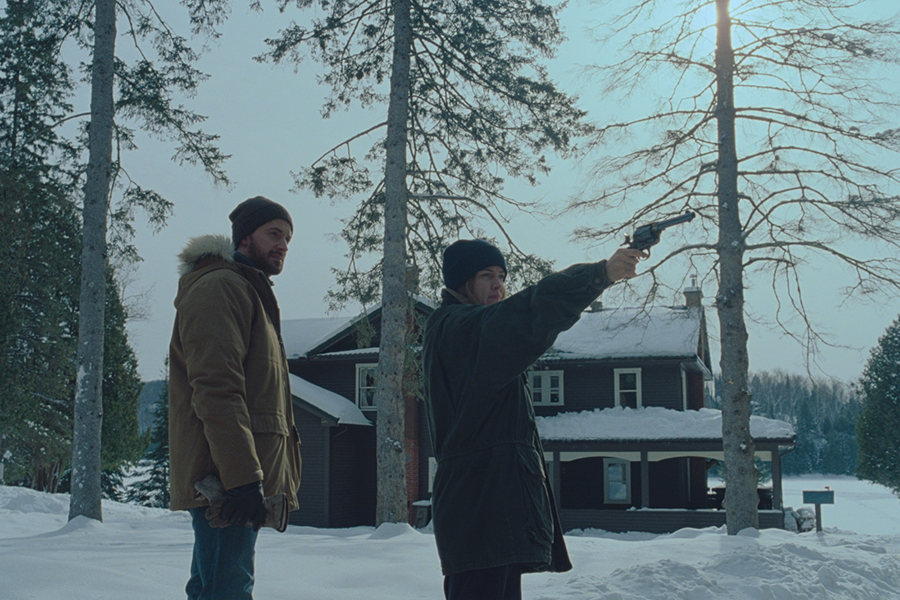
Grace’s marksmanship skills are surprising, if not foreboding!
I have heard others say that the lodge is about the cruelty of children. That, I think, lets Mia and Aidan off the hook too easily, making them seem too normal. This pair, while having an arguable motive for cruelty, take it, I believe, to a level of evil–uncommon cruelty, acted out at a conscious level. Yes! This, for me, is a movie about children who (normal as they may have been) become evil, at least for a time. This is a movie that is horror, because it shows what children can become when circumstances push them to their limits, with opportunity. There is only one redeeming element keeping Mia and Aidan from being among the worst of evil children, akin to Rhoda from The Bad Seed (1956) and Damien from The Omen (1976). What is it? It’s a good reason to watch the movie! Afterward, read the extra analysis below titled “More about Mia and Aidan, as Evil Children (With Significant Spoilers),” for more of my thoughts.
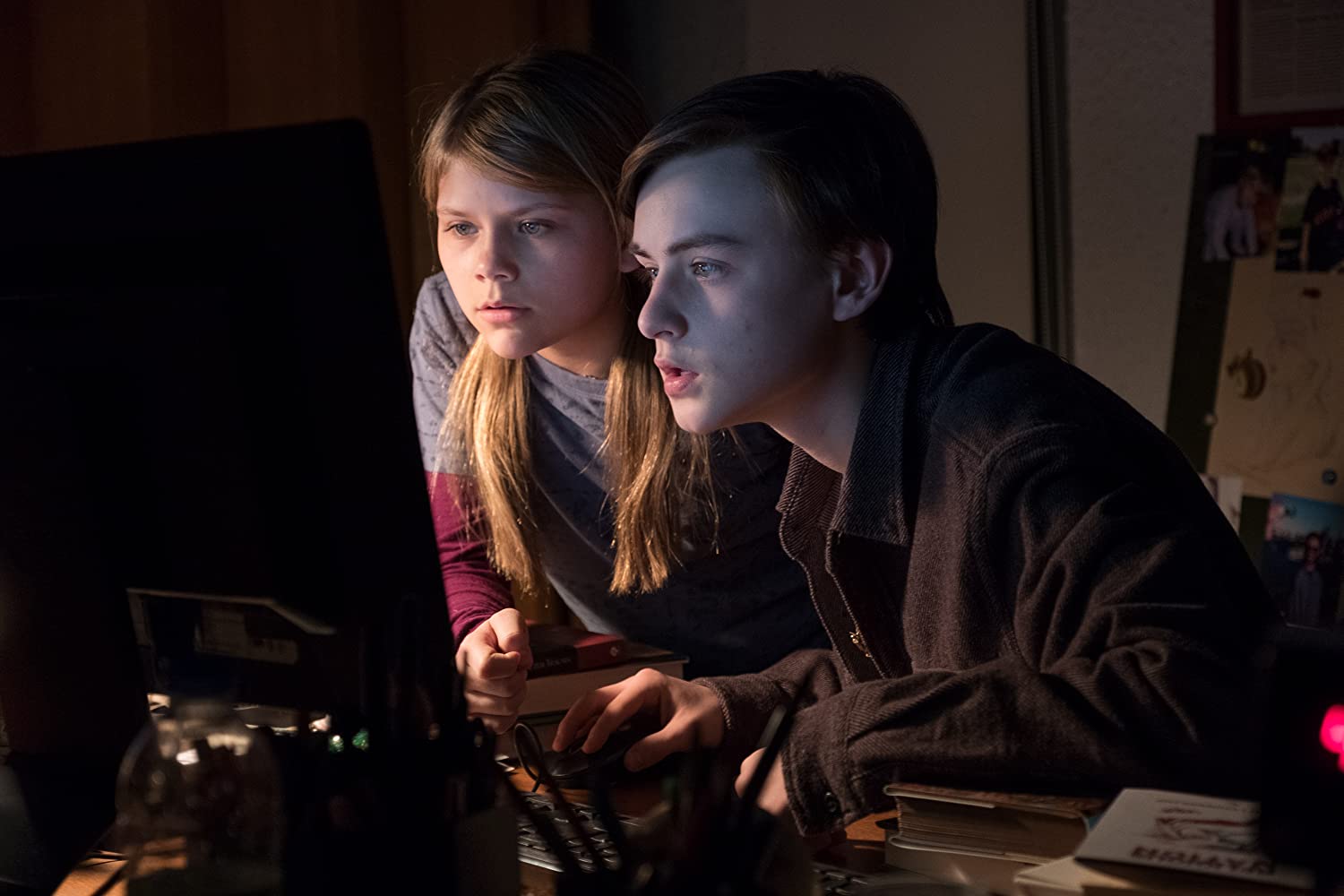
Mia (Lia McHugh) and Aidan (Jaeden Martell) doing a little internet research!
While everything seems caused by the children, is it really? There is the bonus of an overarching, supernatural essence about it all, at least as a possibility–and a very creepy one at that! The camera focuses, objectively, on a door shutting, with force, on its own, at the end of a dark hallway. No! The wind isn’t blowing, and there’s no one else in the house; there’s no chance we’re seeing this from the perspective of a troubled mind. A particularly spooky portrait of the Virgin Mary hangs on a wall, her face seeming more real than painted, more haunting than spiritual. There are also recurring scenes with Mia’s doll house (perhaps a miniature lodge), with dolls inside in positions suggesting ominous futures for the family. This is shown more than once, with purpose and foreshadowing. Are these the plans of Mia played out in her dollhouse? Or, are they, perhaps, the work of something darker, something supernatural, something inhuman? We may never know. But, the possibilities add endlessly to the atmosphere, dread, and the horror!
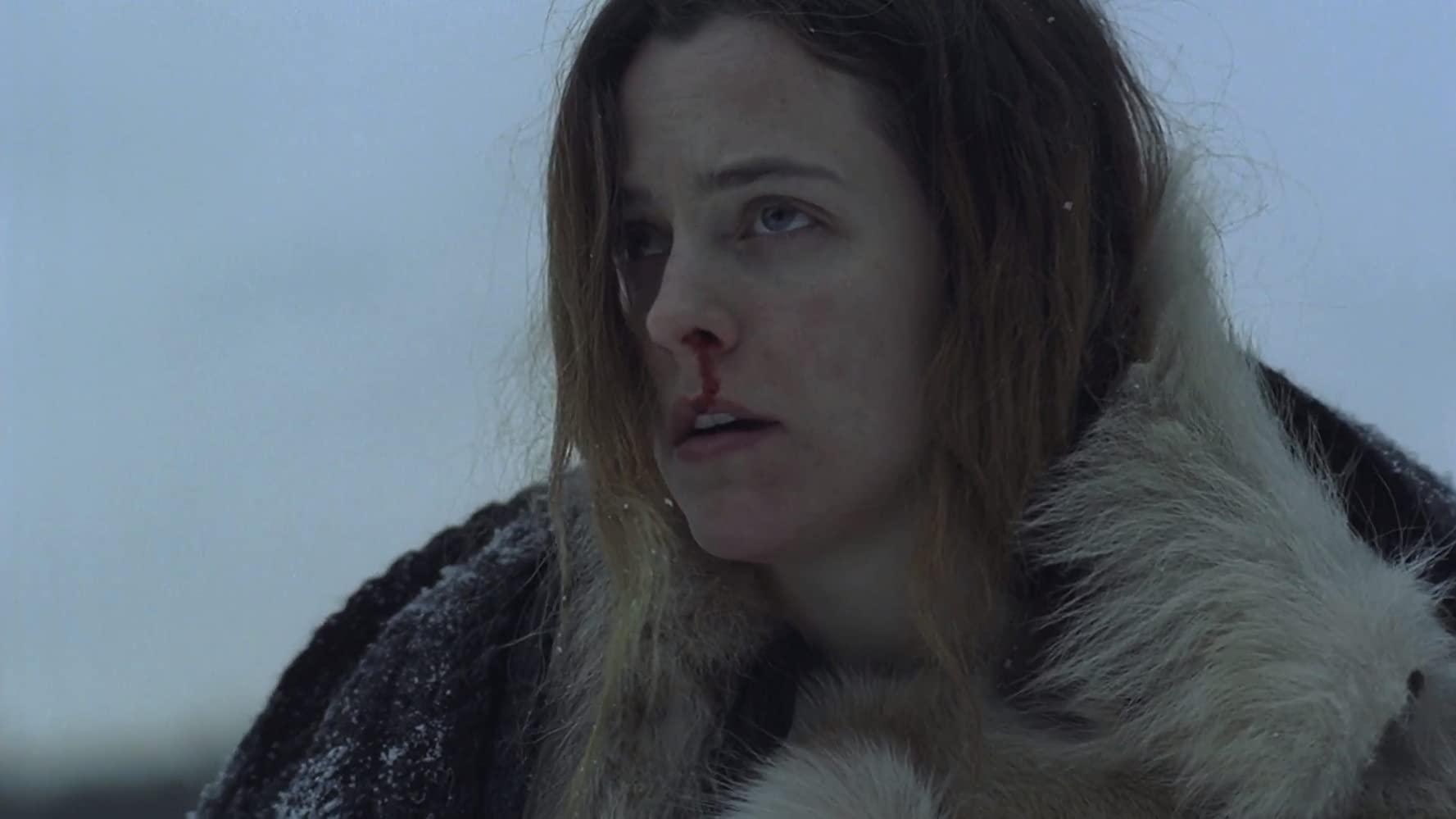
Riley Keough (as Grace) in The Lodge
The Lodge isn’t horror made with cheap jump scares, sudden loud noises, and the like of genre cliches. Instead, it’s horror is suggested to the mind, intensified with ominous images, lighting, and tons of atmosphere. I say “tons,” because it is oppressive and uncomfortable as much for viewers as it is for Grace. As the movie progresses, the lodge becomes darker and seemingly haunted. What begins as a place decorated with the joys of Christmas, later seems satanic and possessed. The lodge is transformed, along with Grace, as a metaphor to her condition and perception of the world around her; it becomes a place as horrifying as the events occurring within it.
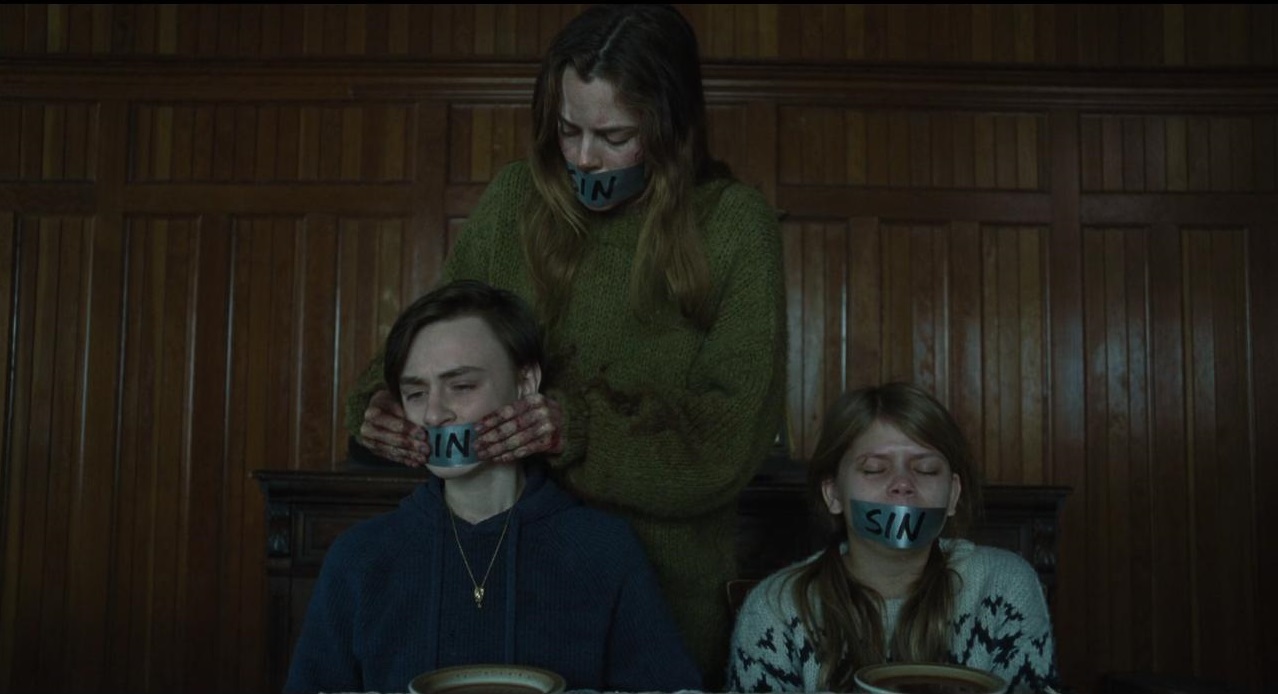
“Repent and you will find salvation.” ~ Aaron Marshall
If there is one thing I have trouble with in The Lodge, it is Grace’s reaction when Grady is missing. (Yes! I told you there would be more about this.) When I once lost my dog, I was utterly inconsolable, and, above all, relentless in my search for him. I left no area of the neighborhood unchecked, even though (and especially because) it was during the winter, with snow on the ground. With the cold and snow, I worried all the more about my dog. It was only with much passion and determination that I was, thank God, able to find him, finally, safe and unharmed. Even though it took hours, I could not have stopped searching, at least not until the elements, fatigue, or darkness got the best of me. Does Grace do what I did, and what most people would do? Does she find him? (For extra analysis, with spoilers, read the section below titled “More about Grace’s Reaction to Grady.”)
“Everyone committed suicide except for her. She’s supposed to bring the teachings of the sect to the public.” ~ Aidan
Does The Lodge remind me of any other psychological horror film? Does the Overlook Hotel, in the snowbound Colorado Rockies come to mind, with Jack Torrance roaming the halls ready for murder, or REDRUM? Does the spiraling insanity and mayhem in The Lodge in any way resemble Stephen King’s classic The Shining? Yes, certainly! But, not so much to be, in any way, copied from it. The Lodge has enough of its own to be different, uniquely so. There’s none of the madcap humor of insanity here! There’s no quotable lines like “Wendy, I’m home!” or “Here’s Johnny!” The Lodge is dark, without humor, and without a certain supernatural element. It is effective, as horror, with events all possible in the real world. Being possessed with the spirit of another is not necessary for Grace to become as horrific as Jack. Grace only needs to be herself. In that way, she is, perhaps, even more horrific.
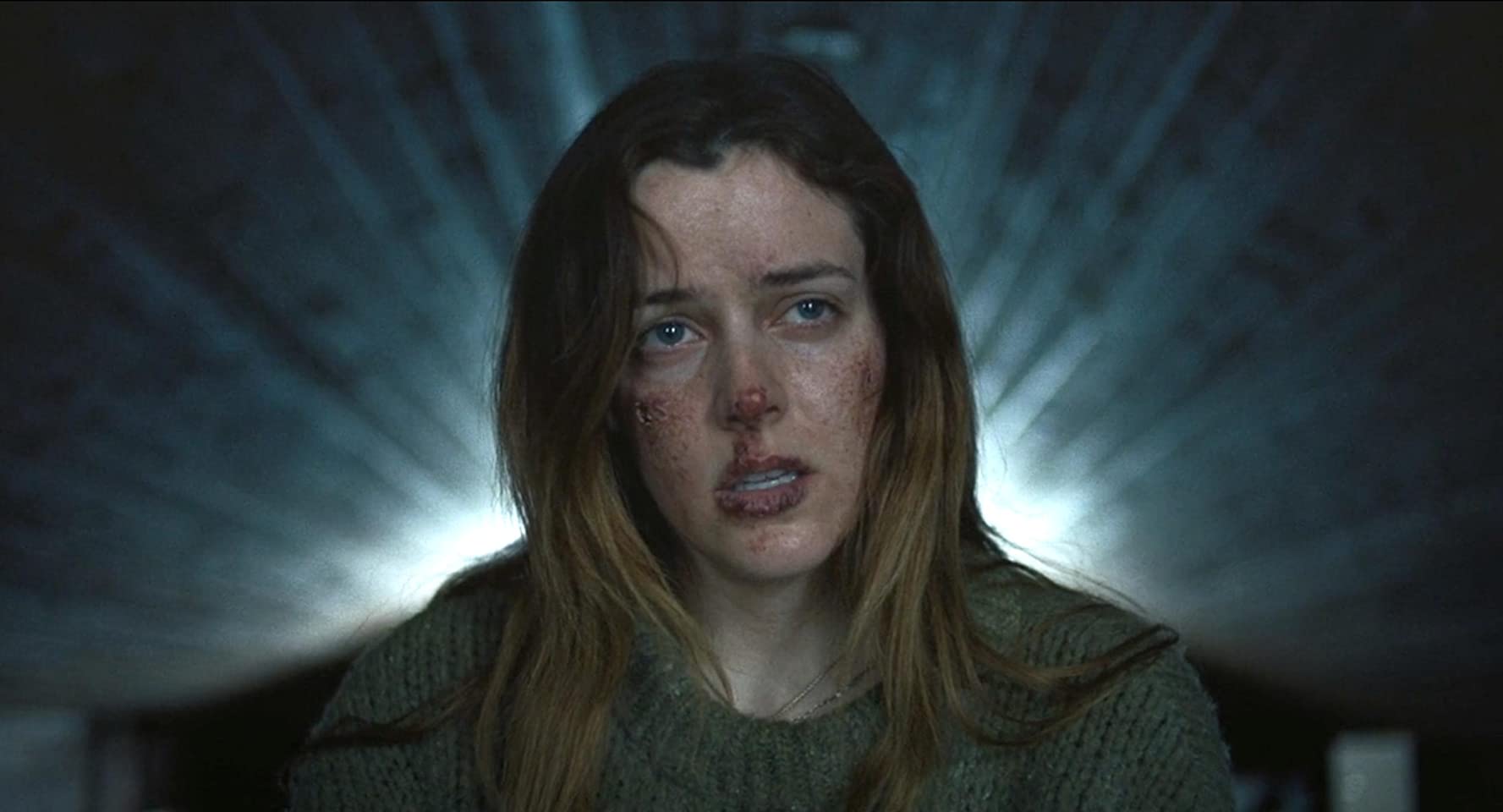
Grace (Riley Keough) spiraling into madness, in The Lodge
“In the end, [The Lodge] leaves us stranded in the cold, after a promising setup.” No! I didn’t say that! Slick as it is, it’s not a quote from me, but one from someone else. How, exactly, I ask, does the The Lodge leave us “stranded in the cold”? How much more obvious does the ending need to be? Do we need to hear a gun to know? Do we need to see blood and gore–brains splattered and arteries gushing? Do we need to see bodies, lifeless and slumped, with last nerves twitching? I think not. We are, instead, left in the warmth or, perhaps, the searing, uncomfortable heat of our imagination–a heat that smolders and lingers, long after the credits roll. There, in our minds, we can see all that is needed.
“I never got presents when I was little. My dad was really serious about the Bible, and it doesn’t say anything about presents in the Bible.” ~ Grace
The Lodge takes us to the horror of the human mind, spiraling ever downward, unleashed by the cruelty of children–or, perhaps, their evil. Madness and delusions become terror, unmatched; nightmares become visceral and bloody, felt deep. While other movies make us forget, The Lodge makes us remember and think. Taking chances, doing the unexpected, traveling outside safe but tired formulas of the genre, The Lodge is far from a chilly chiche…and well worth the time!
Further analysis (with spoilers) is included after the Rocket Meter, below!

Rocket Rating – 8
More about Mia and Aidan, as Evil Children (With Significant Spoilers)
Eventually, Mia and Aidan feel empathy for Grace, albeit far too late. After the worst has happened, they feel remorse (nearly unbelievable at the point), attempting to reverse the damage. Rather than waiting for their actions to pose a danger to themselves, acting out of selfishness, they feel remorse, just in time to be less than totally evil, less than sociopathic actually. Just like children, they attempt to restore things to normal, quickly, as if it never happened, by apologizing and saying it was just a joke. But, does this make the horror they have perpetrated, the cruelty they have inflicted, any less cruel or horrific? Does this make them any less evil in their moments of uncommon cruelty? Are they, in some way, excused, because they are children? No! These are children, but children old enough to know what they are doing.
With all of that being said–about, at least, the cruelty of Mia and Aidan–are they deserving of the fate they receive as a result? While it is probably too harsh to say they are deserving, there is one thing that is for sure. Once things get bad for them, it’s hard for audiences to feel for them, even though they are children. They research Grace’s past, and, with the knowledge they gain, subject her to things she fears most; stage fake deaths: attempt to alter her sense of reality and drive her crazy; deprive her of the medication she needs to make it easier to affect her psychologically, and much more–all of this, even worse, is done after her poor dog has gone missing and has likely died! With all of this, it is hard to forget, let alone forgive, what these “children” have done. There are few things more horrifying than evil children. As younger, smaller humans we expect them to be harmless, far from anything deadly. When they are not, they can be, like Mia and Aidan, the most horrifying of real-world monsters.
More about Grace’s Reaction to Grady (With Significant Spoilers)
Extended grief and hope for finding a lost dog bright and early the next morning is the expected reaction, as I see it–and, as I think most people see it. Even though it’s a movie with only 90 minutes of time, it should take time to make the loss of a dog more important. After it is discovered that Grady is missing, there is panic and a search ensues. Grace searches for what is likely into the evening or night. That is what the sudden lapse in time suggests, moving from a scene with Grace on the frozen lake in front of the lodge to one of her cold and warming up by the fireplace (and that is all excellent). However, it is hard to believe that a dog owner, who truly loves their dog (as we are led to believe Grace does) would not search more the following day. What’s more unrealistic is how quickly Grace seems to stop thinking about and worrying about Grady; there is nothing more said about him beyond the day he goes missing. Who could really forget their dog so quickly? At this point, Grace doesn’t have the excuse of being mentally destroyed, as she does later.
Finally, when we find out where Grady was, it is all the more ironic (and tragic) that they didn’t search for him…just a little more! Yes! I know this is just a movie, but my point is that more concern for Grady would have been more realistic. Once a dog goes missing, you’ve opened a can of worms, and all the worms need to be counted. A sense of continued hope, with continued searching must occur. Yes! Once found, there is an excellent scene where Grace grieves (almost in a trance, and at great length) over Grady, and this is excellent again, even making up for the less than believable reaction earlier. Does any of this make The Lodge less effective as a horror film? No. But, it does cause an unnecessary distraction…and a head-scratching moment for sure.
Chris Rennirt (the author of this review) is a movie critic and writer in Louisville, Kentucky, as well as editor in chief at Space Jockey Reviews. He has been a judge at many film festivals, including Macabre Faire Film Festival and Crimson Screen Film Fest, and he attends horror and sci-fi conventions often. Chris’ movie reviews, articles, and interviews are published regularly on Space Jockey Reviews and in Effective Magazine. His mission statement (describing his goals as a movie critic and philosophy for review writing) can be found on the “Mission” page, here at SJR. For more information about Chris Rennirt (including contact details, publicity photos, and more), click here.
You may also like these!


